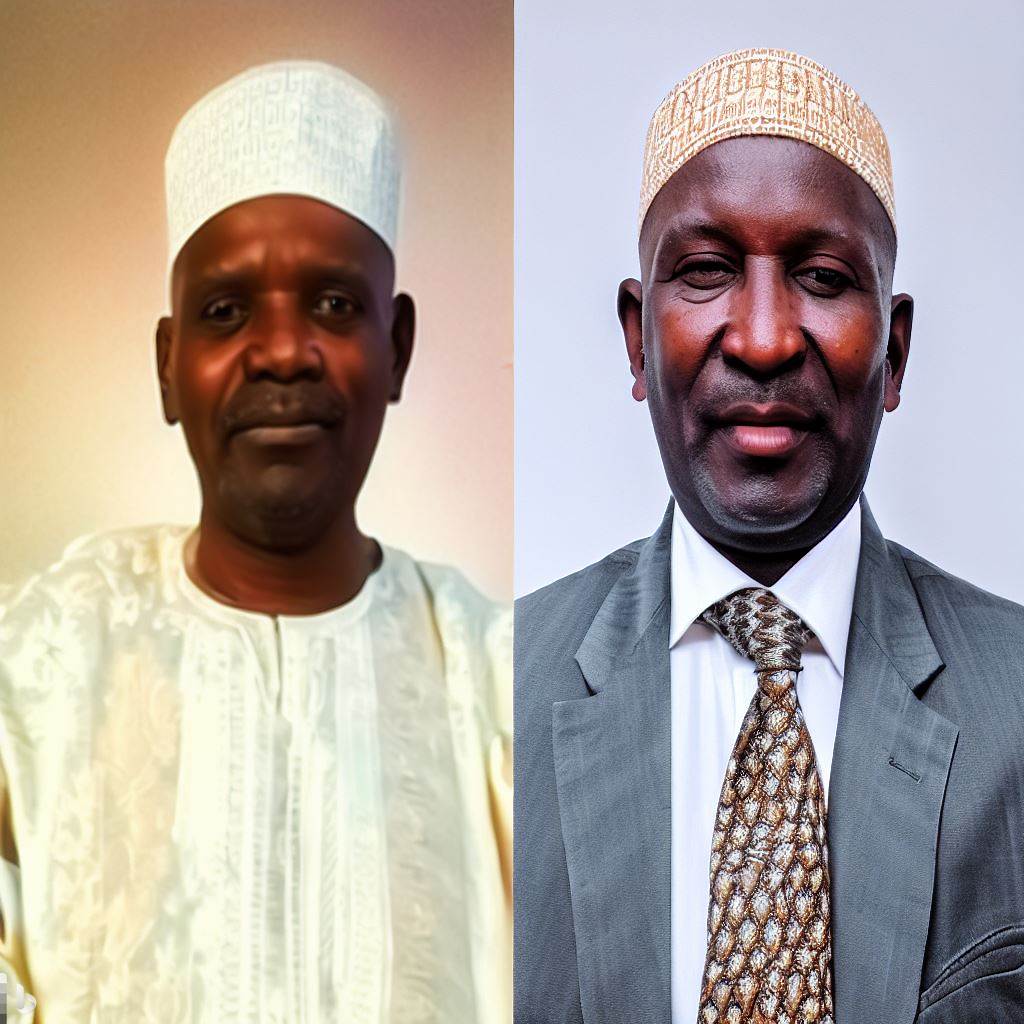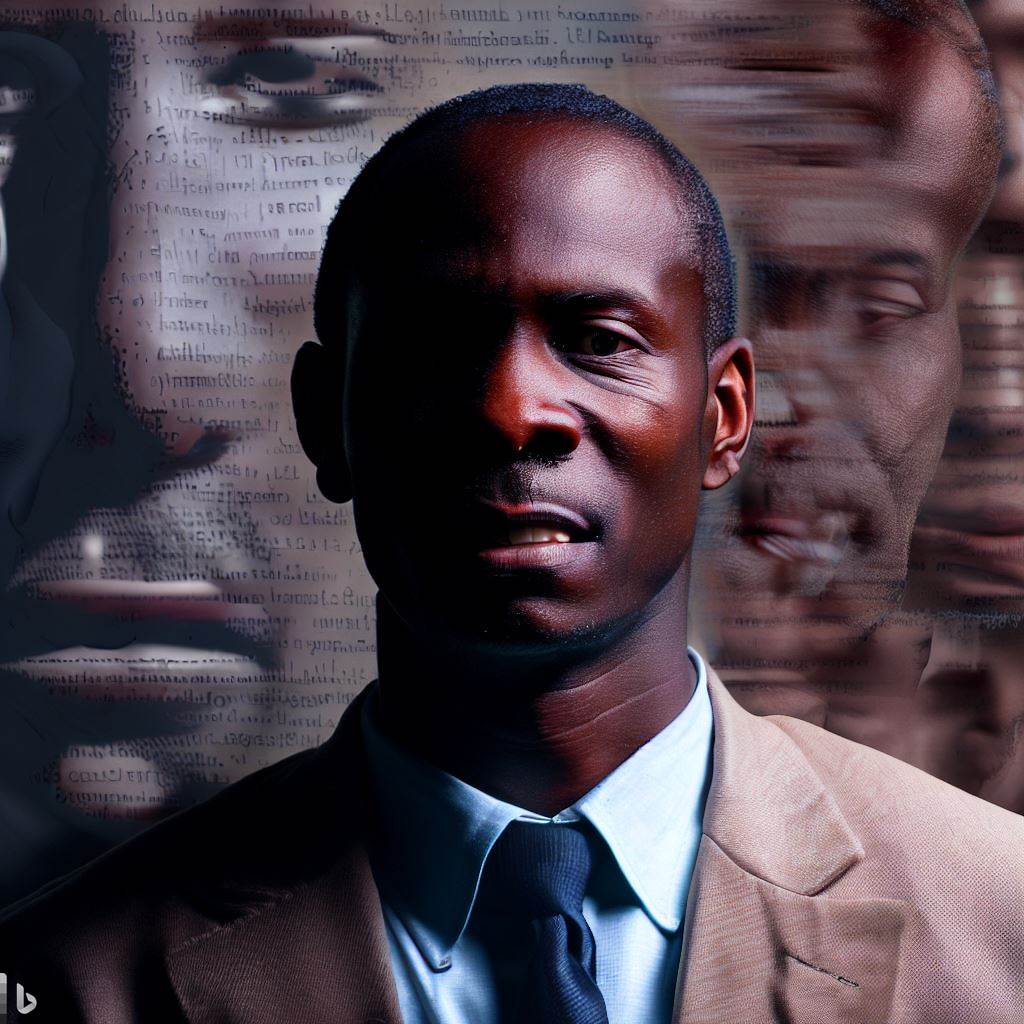Introduction
Public Perception of Political Scientists in Nigeria
Public perception plays a vital role in shaping the image and credibility of political scientists in Nigeria.
Explanation of the importance of public perception
The way political scientists are perceived by the public has significant implications for their influence and effectiveness in the field.
A positive public perception enhances the reputation and credibility of political scientists, allowing them to have a stronger impact on policymaking and public discourse.
On the other hand, a negative perception can undermine the legitimacy and relevance of their work, hindering their ability to shape public opinion and contribute to meaningful change.
Hook to capture the reader’s attention
In a country where politics dominates everyday life, understanding the public perception of political scientists is crucial.
Nigeria’s political landscape is complex, with diverse opinions and ideologies shaping the perception of those studying and analyzing political dynamics.
Thus, exploring the public’s perspective on political scientists in Nigeria becomes an intriguing and critical topic.
Stay tuned to delve deeper into this fascinating subject, uncovering the challenges and opportunities political scientists face in shaping the nation’s future.
Brief Overview of the Role of Political Scientists in Nigeria
In Nigeria, political scientists play a crucial role in understanding and analyzing the political landscape.
They are experts in the field of political science, which is the study of politics, government, and political behavior.
Political scientists utilize their expertise to contribute towards governance and public decision-making.
They provide valuable insights and recommendations through their research, analysis, and predictions.
Definition of Political Science and Its Application in Nigeria
Political science is a social science discipline that focuses on the study of politics and governmental systems.
It encompasses various subfields including political theory, comparative politics, international relations, and public administration.
In Nigeria, political scientists apply their knowledge and skills to comprehend the political dynamics of the country, including its democratic processes, policies, and institutions.
Contribution of Political Scientists to the Political Landscape
Political scientists significantly contribute to the political landscape in Nigeria.
They conduct extensive research to investigate political phenomena, provide analysis, and make recommendations for effective governance.
By understanding the political dynamics, they help shape policies, strategies, and interventions to address pressing issues and challenges faced by the society.
Examples of Specific Areas Where Political Scientists Make a Difference
- Election Monitoring and Analysis: Political scientists play critical roles in monitoring elections, analyzing results, and assessing the overall integrity and fairness of the electoral process in Nigeria.
They provide insights into voting patterns, electoral violence, and other factors that affect democratic elections. - Policy Formulation and Evaluation: Political scientists contribute to the formulation and evaluation of policies by providing evidence-based analysis and recommendations.
They assess the impact of existing policies and propose alternatives for better governance and public administration. - Public Opinion and Social Movements: Through surveys, interviews, and analysis, political scientists gauge public opinion on various issues and track social movements.
This helps in understanding the preferences, concerns, and aspirations of the populace, enabling policymakers to make informed decisions. - Conflict Resolution and Peacebuilding: Political scientists are involved in understanding and resolving conflicts in Nigeria.
They study the underlying causes of conflicts, identify potential solutions, and engage in peacebuilding efforts through mediation and negotiation. - Political Education and Advocacy: Political scientists play a crucial role in educating and enlightening the public about political processes, rights, and responsibilities.
They engage in advocacy campaigns to promote political participation, good governance, and accountability. - International Relations and Diplomacy: Political scientists contribute to foreign policy formulation, international relations analysis, and diplomatic negotiations on behalf of Nigeria.
They analyze global political dynamics and promote Nigeria’s interests on the international stage.
Ultimately, political scientists in Nigeria have a vital role in comprehending the complex political landscape, providing analysis and recommendations, contributing to policy formulation and evaluation, and advocating for better governance.
Their expertise supports democratic processes, informs decision-making, and drives positive change in the country.
Read: Nigeria’s Top Hotels: Opportunities for Waiters
Factors Influencing Public Perception of Political Scientists in Nigeria
Public perception plays a vital role in shaping the reputation and credibility of political scientists in Nigeria.
Several factors contribute to the way the general public perceives these professionals.
This article outlines the key elements influencing public perception and sheds light on the challenges political scientists face in Nigeria.
Lack of Awareness and Understanding of the Field
- Public’s limited knowledge about political science leads to misconceptions and stereotypes.
- Insufficient awareness of the field hinders the appreciation of political scientists’ work.
- Misunderstandings about the objectives and methodologies of political science contribute to negative perception.
Biased Media Portrayal of Political Scientists
- Media outlets often simplify complex political issues, misrepresenting political scientists’ expertise.
- Political biases of media houses influence the narratives surrounding political scientists.
- Sensationalism and exaggeration in media reporting can undermine the public’s trust in political scientists.
Influence of Political Affiliation on Public Perception
- Public perception of political scientists is often influenced by their political affiliations.
- Supporters of opposing political parties may perceive political scientists as biased towards their rivals.
- Political polarization deepens public skepticism towards the objectivity of political scientists.
Negative Experiences with Political Scientists
- Instances of misconduct or unethical behavior by certain political scientists tarnish the entire profession.
- Indifference or incompetence of some political scientists can contribute to negative public perception.
- Public encounters with unresponsive or dismissive political scientists breed skepticism and mistrust.
Impact of Corruption on Public Perception
- Widespread corruption in Nigerian politics taints the image of political scientists.
- The association between politics and corruption influences the public’s perception of political scientists.
- Corrupt politicians taking advantage of political scientists’ expertise further damages their reputation.
In summary, public perception of political scientists in Nigeria is influenced by various factors.
The lack of awareness and understanding of the field, biased media portrayals, political affiliations, negative experiences, and the impact of corruption all contribute to shaping how political scientists are perceived by the public.
To enhance the perception of political scientists, there is a need for increased public enlightenment, objective media coverage, professionalism within the field, and a commitment to ethical conduct by political scientists themselves.
Read: Networking Tips for HR Professionals in Nigeria

Consequences of public perception on political scientists
Negative public perception of political scientists in Nigeria has significant consequences:
- Diminished credibility and trust hinder their influence on public opinion.
- Mobilizing support for research and initiatives becomes challenging.
- Limited career opportunities affect job prospects and advancement.
- Impact on policy-making is reduced as policymakers may not seek their advice.
Negative public perception undermines the credibility of political scientists, hindering their influence and contributions to public discourse.
This perception makes it difficult to garner support for research projects and initiatives, affecting progress and innovation.
Basically, it limits career opportunities for political scientists, hampering their professional growth and development.
In short, their impact on policy-making is diminished when policymakers perceive them negatively, leading to less informed and less effective policies.
Addressing public perception is crucial to ensure that political scientists can actively engage in shaping the country’s future and make valuable contributions to society.
Read: HR Laws in Nigeria: What Specialists Must Know
Efforts to Improve Public Perception of Political Scientists in Nigeria
Public perception of political scientists in Nigeria has often been marred by misconceptions and negative biases.
This blog section outlines various efforts that can be undertaken to improve the public’s perception and enhance the credibility of political scientists in the country.
Education and Awareness Campaigns
One way to improve public perception is through education and awareness campaigns.
Political scientists should actively engage in disseminating accurate information about their field, its relevance, and the value it brings to society.
Promoting Transparency and Accountability
Political scientists must adhere to high standards of transparency and accountability.
By conducting research and publishing findings in an open and transparent manner, they can build trust and credibility among the public.
Raising Ethical Standards
Adopting and promoting ethical standards is crucial for political scientists.
They should maintain integrity, avoid conflicts of interest, and ensure unbiased analysis and reporting.
Collaboration with Media
Political scientists should actively collaborate with the media to present unbiased portrayals of their work. By working together, they can counter misinformation and promote accurate understanding of political science.
Engaging with the Public
To bridge the gap and address misconceptions, political scientists should actively engage with the public.
They can organize public seminars, conferences, or workshops to foster dialogue and address concerns.
Improving public perception of political scientists in Nigeria requires a concerted effort from the entire community.
By actively promoting transparency, raising ethical standards, and engaging with the public, political scientists can enhance their credibility and contribute to a more informed society.
Read: Challenges Faced by HR Specialists in Nigeria
Conclusion
When all is said and done, public perception plays a crucial role in the field of political science in Nigeria.
It can shape the trust and credibility that political scientists have among the public.
Therefore, it is imperative for political scientists to actively work towards improving public perception.
Recap of the importance of public perception in the field of political science
Public perception directly affects the influence and effectiveness of political scientists.
Positive public perception enhances their ability to bring about meaningful change and contribute to the development of the nation.
Conversely, negative perception hampers their impact and potentially undermines their credibility.
Call to action for political scientists to work towards improving public perception
Political scientists should engage in outreach efforts to bridge the gap between theory and practice.
They must actively communicate their research findings to the public in understandable terms.
By fostering transparency and accountability, political scientists can build public trust and challenge misconceptions about their field of expertise.
Final thoughts on the future of political scientists in Nigeria and the potential impact they can have
The future of political scientists in Nigeria holds immense promise.
With their expertise, they can contribute to policy formulation, governance, and conflict resolution
By actively engaging with the public, political scientists can shape public opinion, drive positive change, and ultimately contribute to the nation’s progress.
It is crucial for political scientists to embrace their role as agents of transformation and work towards making a lasting impact on Nigerian society.




